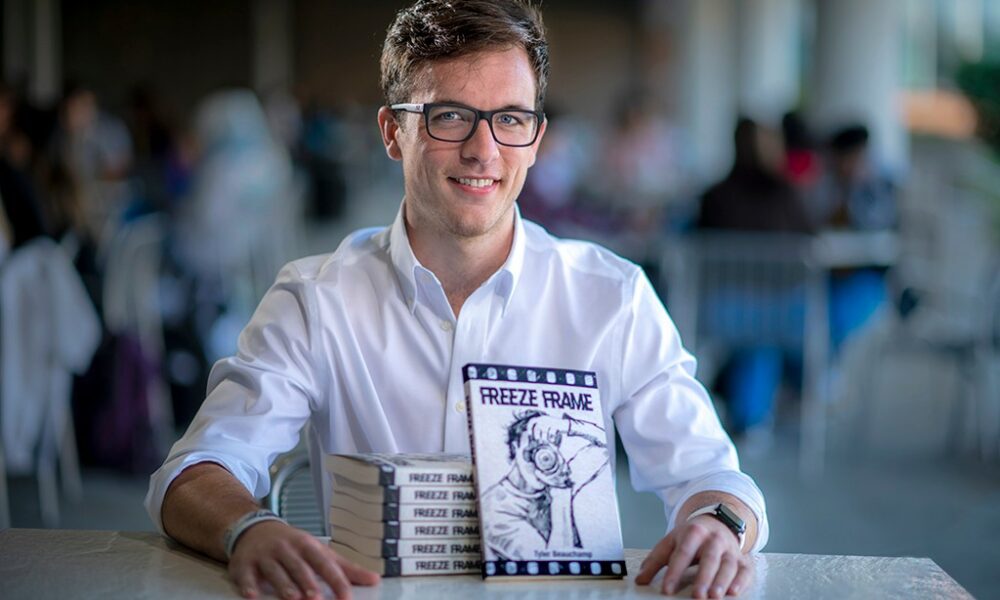

Today we’d like to introduce you to Tyler Beauchamp.
Hi Tyler, we’d love for you to start by introducing yourself.
When I grew up in Savannah, I remember wanting to write, and I remember having chronic pain. I never thought that my life would end up revolving around the two. Years later, I’ve written my first book, and I’m about to finish medical school.
I grew up writing little movie scripts and short stories, finished my first book outline as a junior, but I didn’t show a soul. Writing then was an escape, and I was terrified to bring others in. What if they found the whole thing laughable? In their defense, it was, but you’ve got to start somewhere, right?
At the same time, I was a patient jumping around different research clinics for the better part of my childhood, which gave me great exposure to that side of the medical curtain. I started college, still looking for a diagnosis, and still silently writing. I had absolutely no idea what I wanted to do with my life. I tried everything (creative writing, business, psychology, athletic training, and more) because I didn’t want to leave college wondering, “What if?” It wasn’t until I worked with physicians and saw the other side of that curtain that I found my place. Medicine would allow me to work hands-on with people through their most difficult days and create a lasting impact in their lives. I could also bring my experience as a long-time patient to help empathize with patients and their struggles.
During medical school, in the height of the pandemic, I finally found a story I felt was worth sharing. I was quarantining in a room with no windows. The mind can sort of wander in a place like that, and my mental health declined quickly. I remember having these vivid daydreams, and an image appeared of a boy constantly jumping in and out of reality. My time running a Free Mental Health Clinic, my work in Pediatrics, and a dash of my own battles helped shape the boy’s story. Life in the pandemic was synonymous with isolation. We can’t go through life alone, yet the pandemic did everything in its power to make us all believe we had to. I wanted to translate that to a vulnerable high school student overcoming trauma while highlighting key issues of youth mental illness today (social media, peer pressures, anxiety/depression). In my opinion, children are the most vulnerable members of our society, and they’re surrounded by pressures very few of us can even fathom. Freeze Frame was made to highlight how everyone lives out their own trauma uniquely and to encourage us all to ask for help when we need it.
Alright, so let’s dig a little deeper into the story – has it been an easy path overall, and if not, what were the challenges you’ve had to overcome?
The road has been as smooth as River Street, but even with the few twisted ankles, I wouldn’t change a thing. Getting into medical school was the first hurdle. When I decided I wanted to go, I was already halfway through college. Most of the other pre-meds I knew had been working on their apps since before even starting college. Every step I took never felt enough to “catch up,” so for a good year, I pretty much gave up being a person. I said “no” to seeing friends on too many occasions, took on far too many jobs to bolster my app, and I gave up writing altogether. It wasn’t until I finished interviewing and had months to wait that I realized how much I sacrificed. I told myself then that no matter how busy the road ahead would soon become, I would never let myself become that lack-of-a-person again. If I were to be a doctor, I needed to remain human, as that light would only serve to better help patients. Now, I’m finishing med school getting ready to apply into Pediatrics, I’ve found balance, I could not be happier with where the road took me.
From the writing side, pretty much every step was bumpy. I didn’t know anything about publishing, marketing, or the multitude of roadblocks that pop up, from jotting down a story to getting it on a bookshelf. I kid you not, I remember breaking down laughing when I googled “How to publish a book” for how ridiculous it felt. But again, you’ve got to start somewhere. Each step (finding an Editor, writing 10+ drafts that all went in the trash, learning how to market/tour) took a lot of research, a lot of long nights, and most importantly a lot of failure.
Thanks for sharing that. So, maybe next you can tell us a bit more about your work?
I am finishing up my last year of medical school and applying into Pediatrics this fall. I fell in love with working with kids during rotations. You just get to be a part of so much, from acute care to long-term well-being, and I especially love the idea of preventing problems before they grab hold. I am also a children’s/young adult author. My first book, Freeze Frame, was about a high school boy whose past trauma left him with a fractured reality, sending him into different film genres every time his emotions spring out of control. I’m working on several books to come soon, both starting their own series. One of which is strictly children’s (similar audience to “Magic Tree House”), and the other is young adult science fiction.
Well, medically, I would say finding my people in Pediatrics and making it to the finish line of medical school. It was certainly a marathon (with residency soon to be a new race altogether), but a major hurdle is finding what kind of physician you want to be. I’m incredibly proud to have found my place in Peds, and I can’t wait to get started next year.
From the writing side, I’m most proud of the conversations I’ve had with young readers and aspiring writers. While touring, I got to hear from readers how Freeze Frame helped them feel heard, made them comfortable to open up, and I even got to lend some advice to get them started on their own stories. I don’t care what else happens; that made everything worth it. That’s why we write.
I have to say as well, because I’m beyond excited and proud, that I am blessed to be working with an incredible production company and writer’s room on adapting Freeze Frame into a television series! We’ve actually been building the show around Savannah for the last year, and it’s been incredible to work alongside with local students, writers, and producers to bring the story to the screen. It feels full circle from growing up here myself. Initial filming is revving up soon, so be on the lookout for the crew popping up around town!
Is there any advice you’d like to share with our readers who might just be starting out?
Advice for Medicine: I think the biggest advice I could give is two-fold. First, ask yourself, “Why medicine as opposed to another aspect of healthcare?” This isn’t to discourage you from pursuing medicine, just to make sure you’re doing it for the right reasons. I hear a lot of people answer, “Because I want to take care of others,” which is wonderful and absolutely essential, but every avenue of healthcare helps take care of others. I think the more you consider how you would like to care for others early on, the more you’ll approach medicine with the right mindset. Having a strong “why” will keep you going for years to come. Secondly, ask yourself not only what you want to do but who you want by your side as you do it. In short, “find your people.” It’s something not a lot of people think about when working toward a specific route in medicine, but you’ll be spending a lot more time with those your work with than those you work for. Make sure you’re with people that energize you, lift you up, and encourage you to be keep going.
Advice for Writing:
Biggest advice for writing: Start. Right now. Don’t wait for the right class, mentor, or moment. Start getting words on the page as soon as you can, and don’t be afraid to throw away 90% of what you write. In fact, the more you write the more you’ll throw away. There are at least five or six versions of Freeze Frame I completely tossed out during editing. You’ll find sometimes, after hours of writing; you might only have a sentence or two you really like. But if that’s what it took to get that little piece of gold, it was worth it. Second, you’ll find a lot of advice on “finding your process,” and I promise all of it comes down to trial and error. There isn’t a formula, and you’ll be told everything that worked for other people: keep a notebook on you at all times, constantly jot down your thoughts, write first in the morning, no wait write at night before you sleep, outline, no wait don’t outline just free write. All of this is what worked for others, but it doesn’t mean it’s for you. Take it all with a grain of salt. If what you’re doing isn’t working, try something new, but trust your process. That said, I see a lot of writers get stuck because they feel they can only write when they “feel inspired.” If you really want to write, part of you has to treat it like a job. Carve out a said time for it every day or every week, and absolutely protect that time. Even if you don’t get a single usable word out of it, you spent that time finding what you didn’t want to include. That’s just as important. Lastly, remember to make people feel something. A good story wraps you into a new world and captivates you in ways you never expect. At the end, you feel relieved, sad, angry, or jubilated. But you feel. It’s a blessing to make people feel; never forget that.
Contact Info:
- Website: www.tyler-beauchamp.com
- Instagram: https://www.instagram.com/_tylerbeauchamp/
- Linkedin: https://www.linkedin.com/in/tyler-beauchamp-a6b5b7119/
- Twitter: https://twitter.com/_tylerbeauchamp
- Other: https://www.amazon.com/Freeze-Frame-Tyler-Beauchamp/dp/B0BGKMY7CT/ref=sr_1_2?crid=294WJ85T2ELVT&keywords=freeze+frame+tyler&qid=1685303131&s=movies-tv&sprefix=freeze+frame+ty%2Cmovies-tv%2C123&sr=1-2
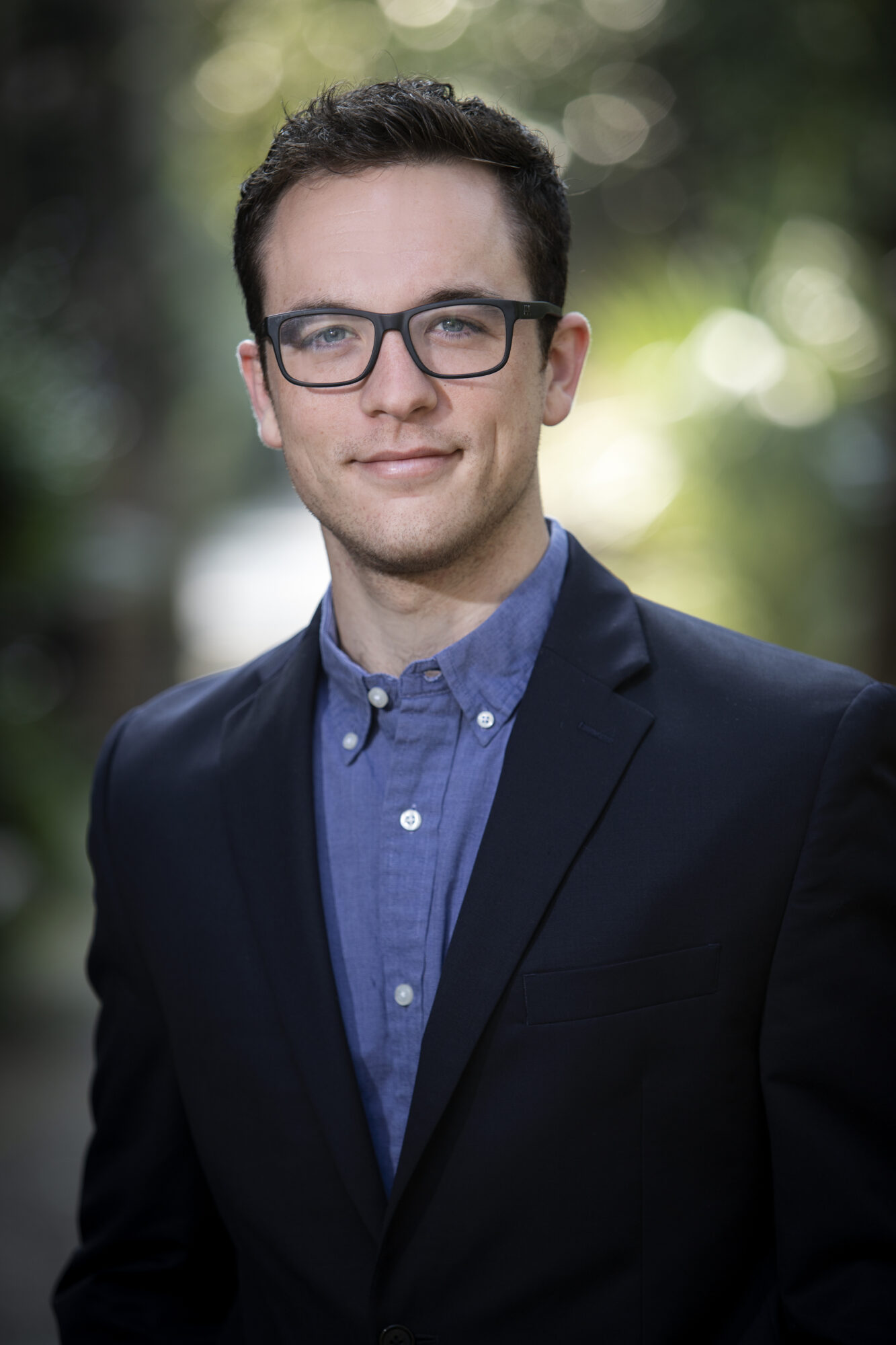
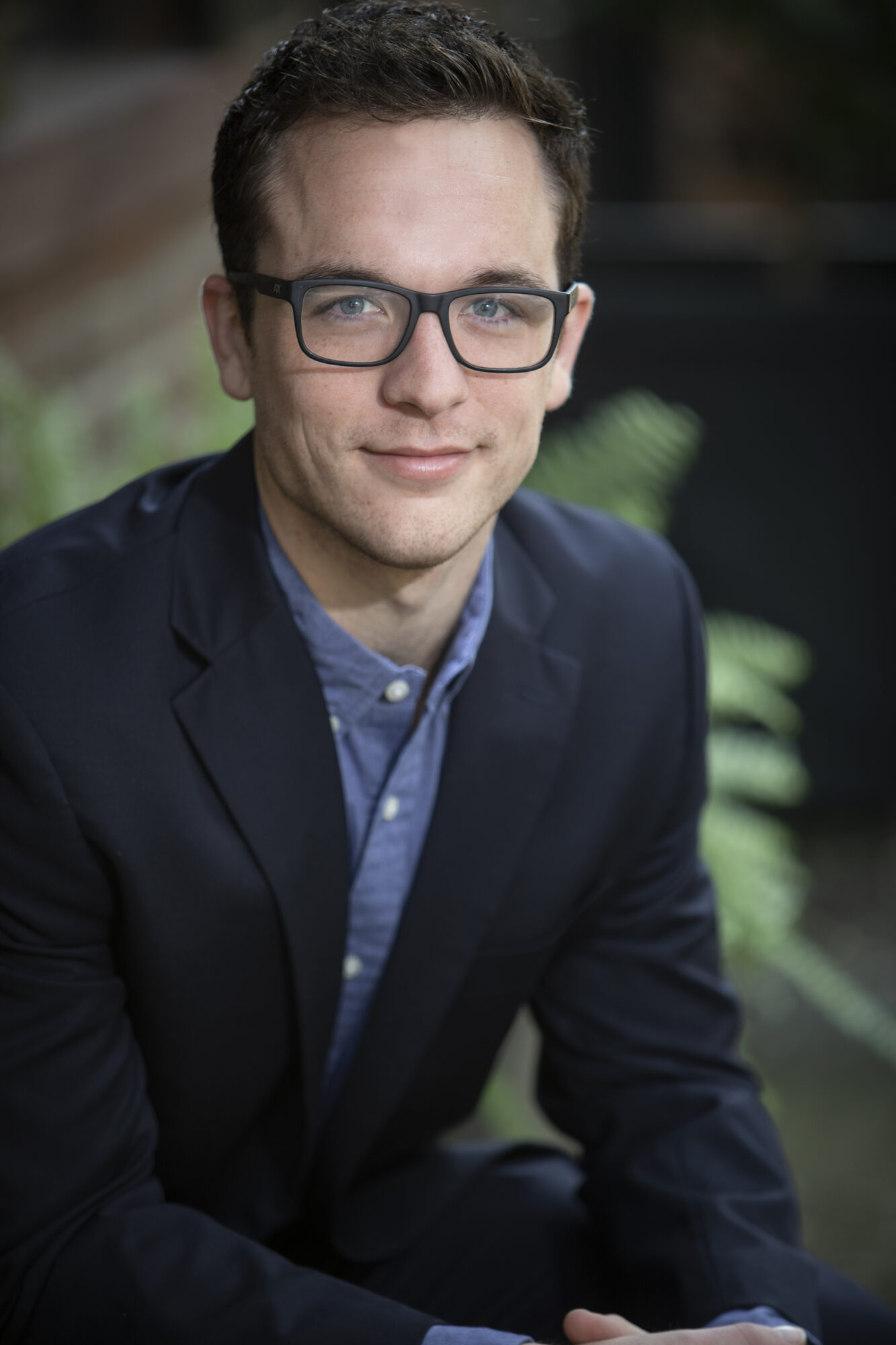
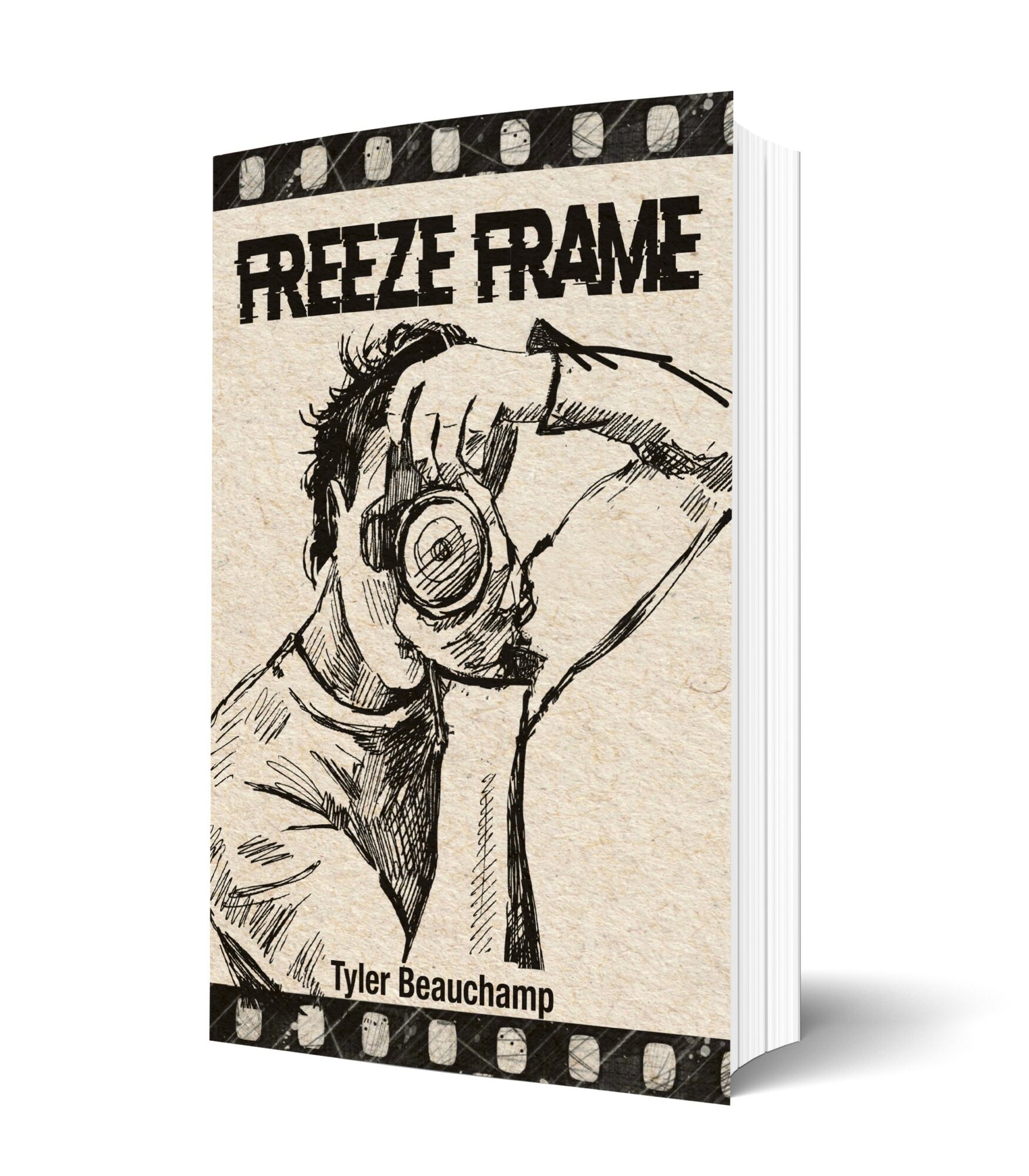
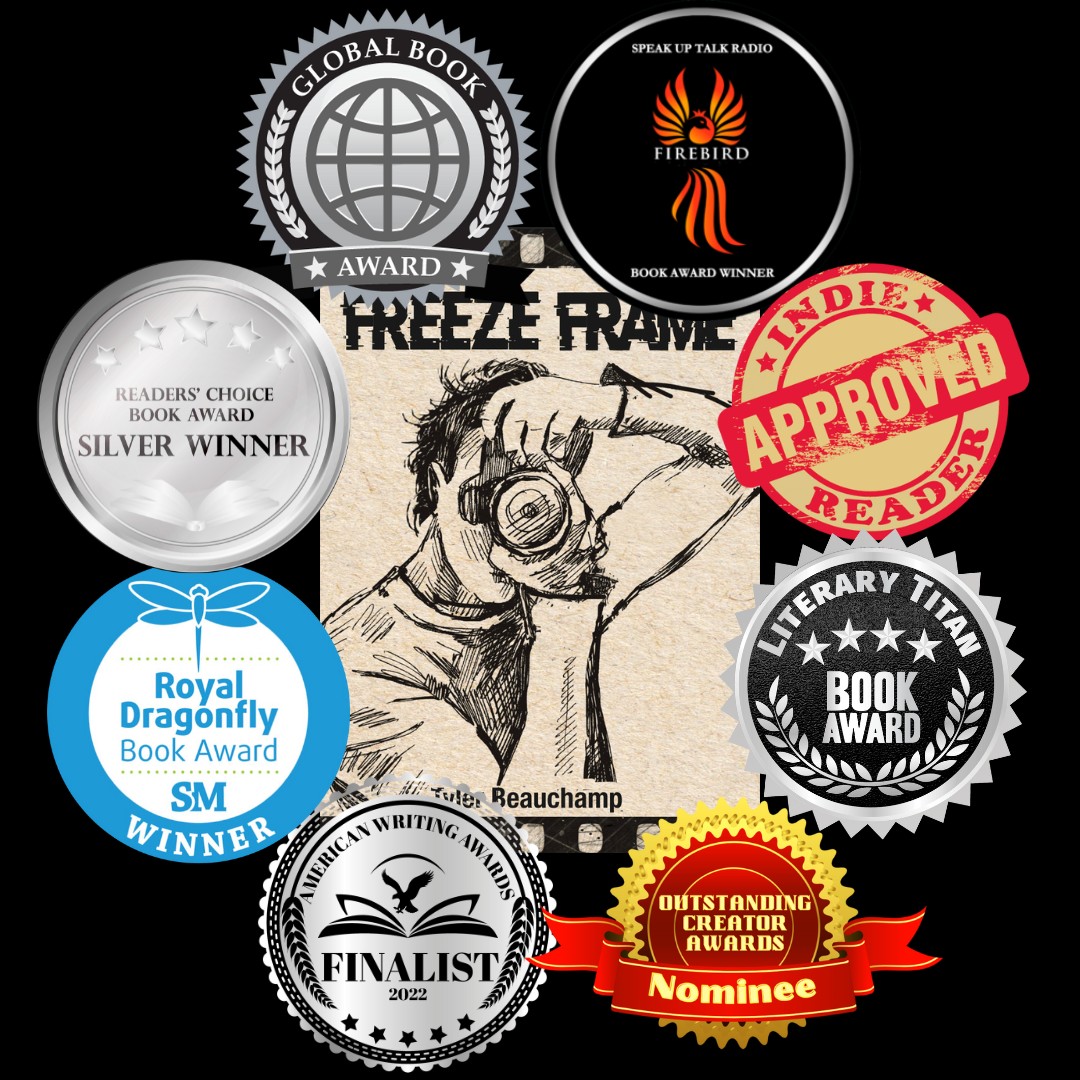
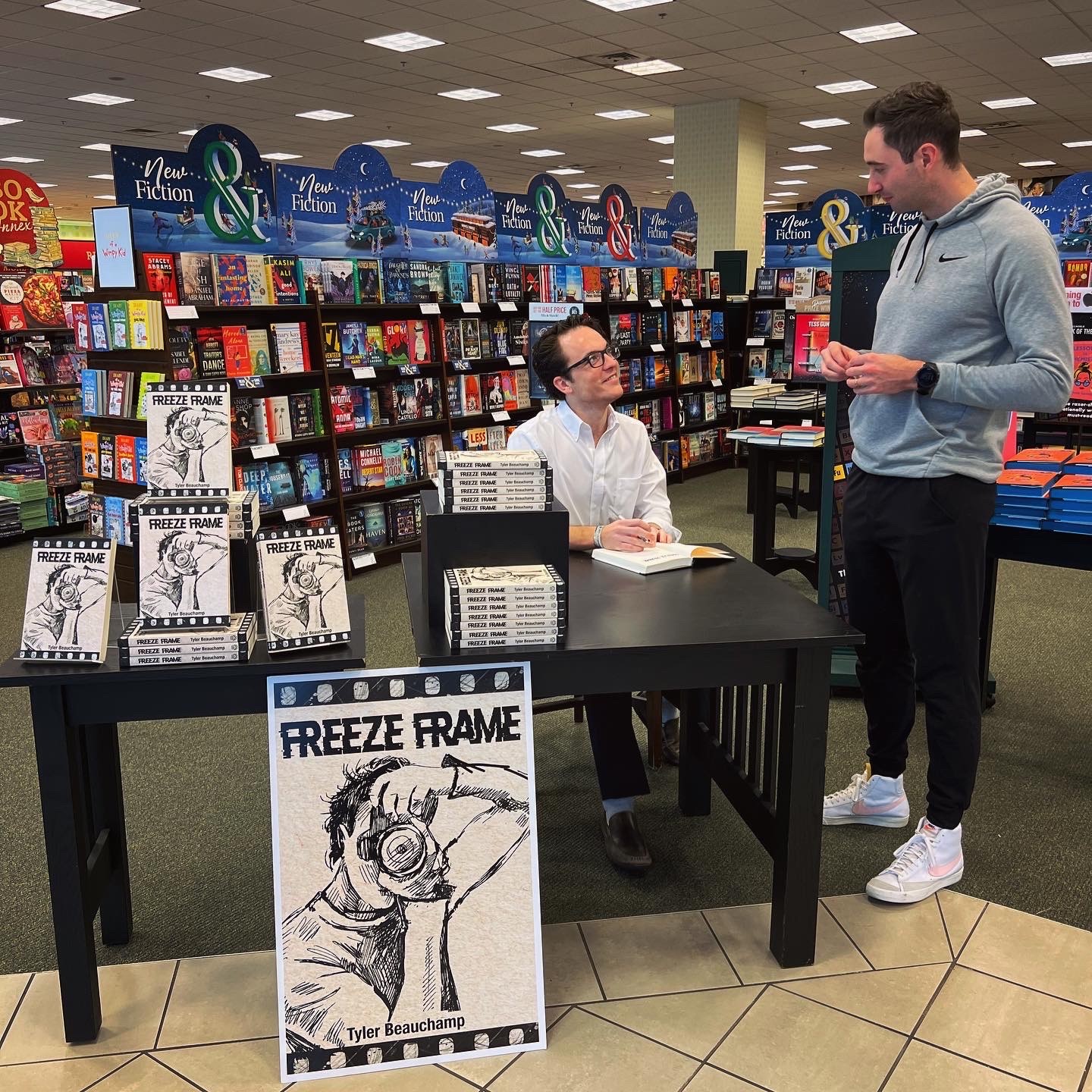
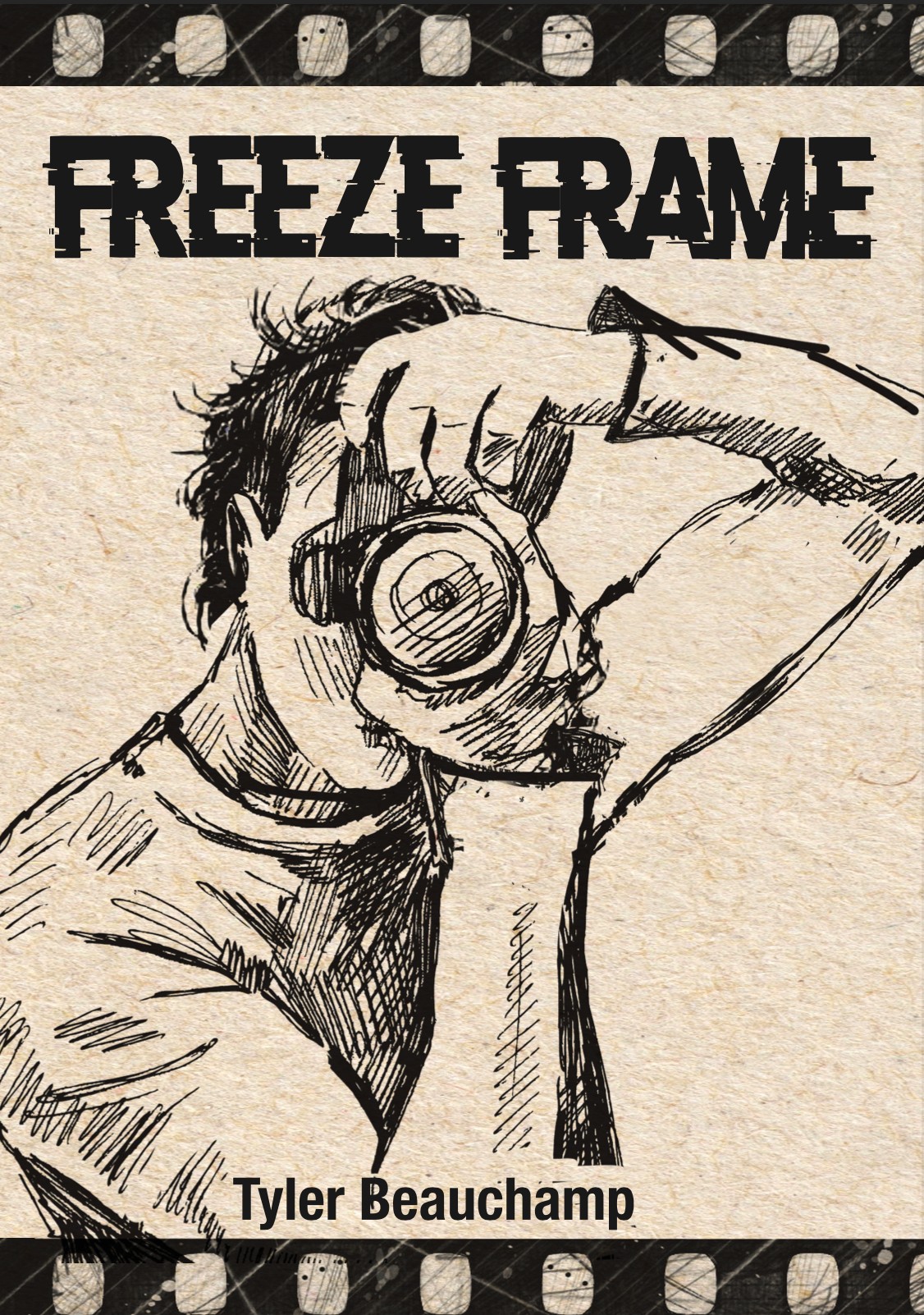
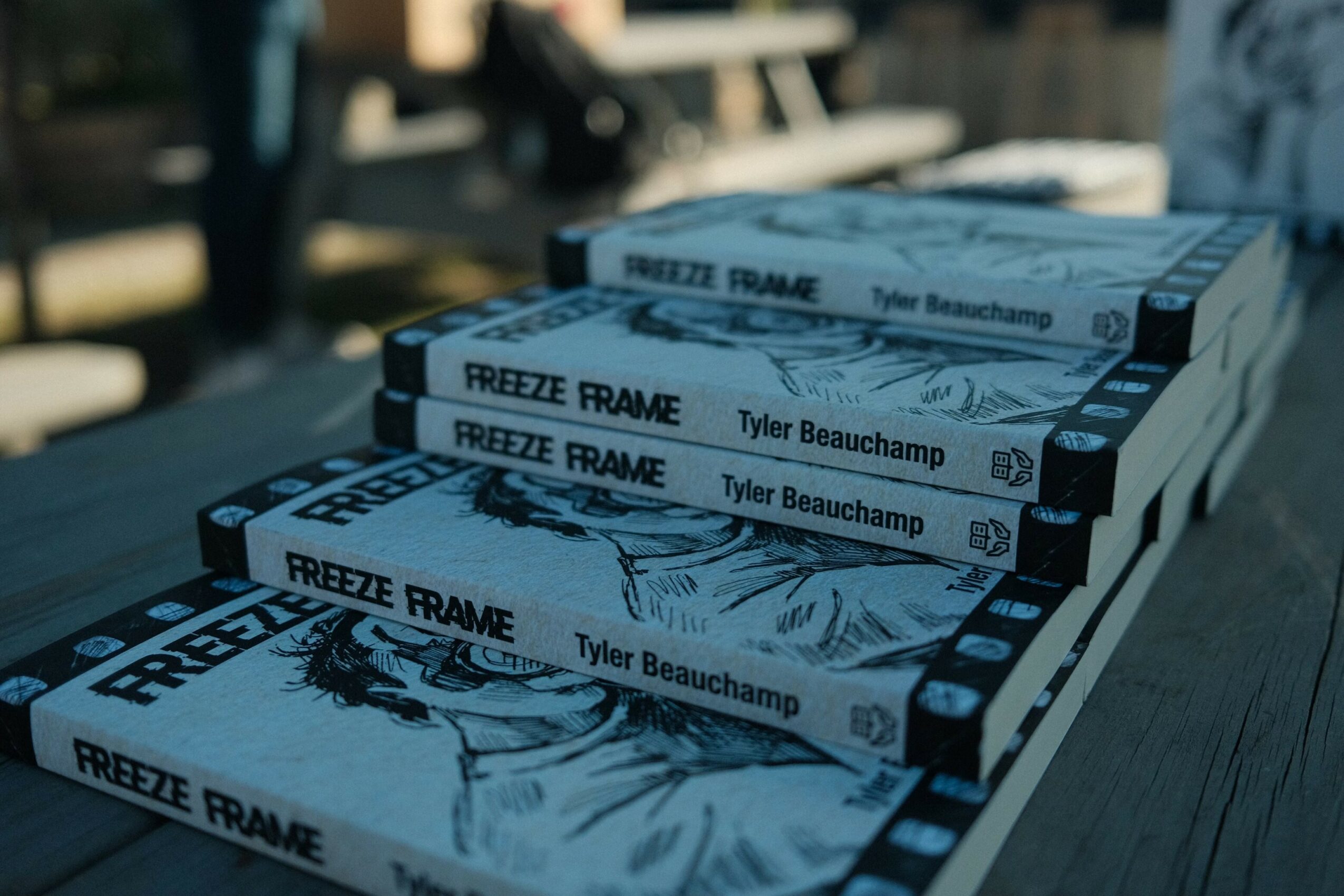
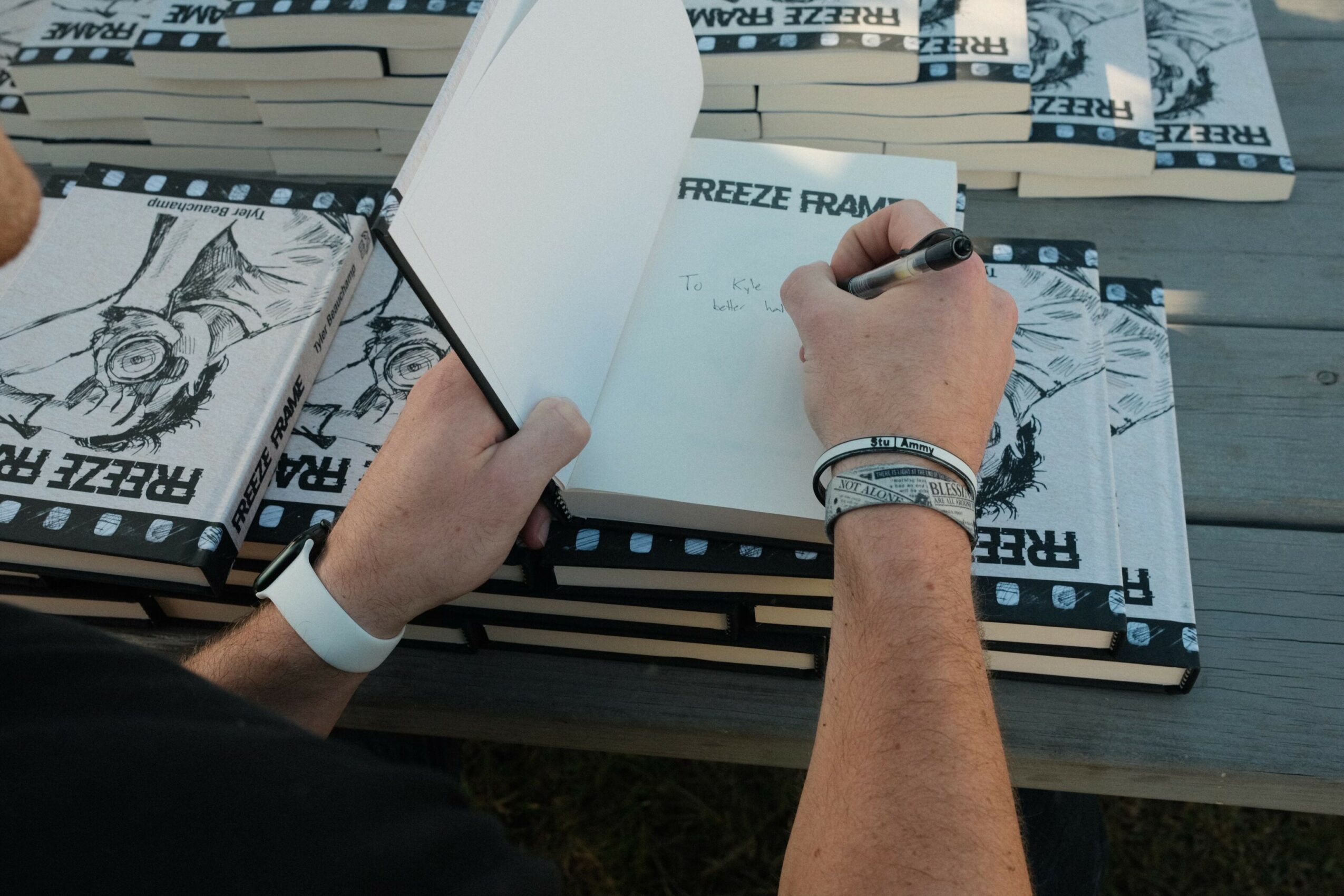
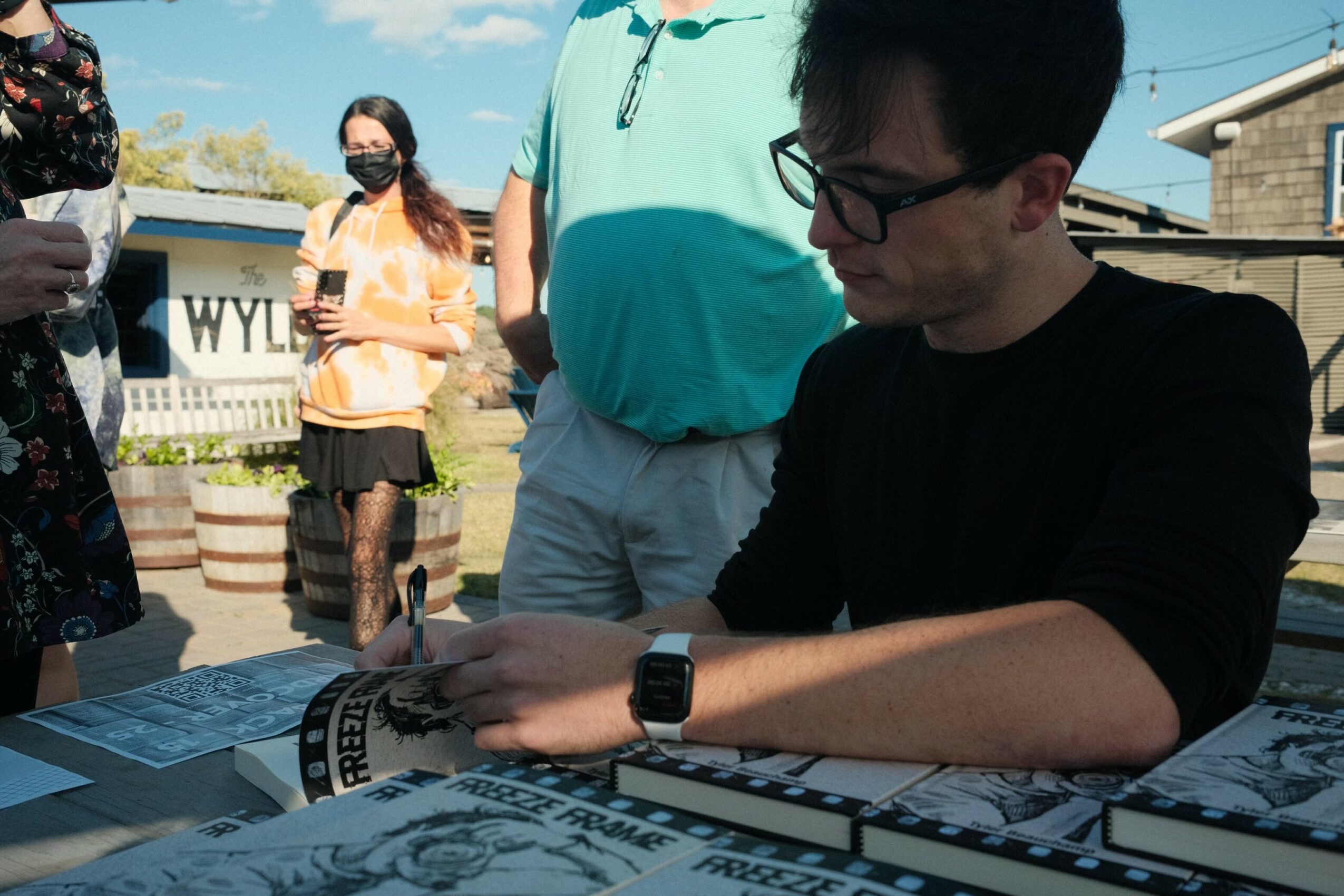
Image Credits
Michael Holahan











